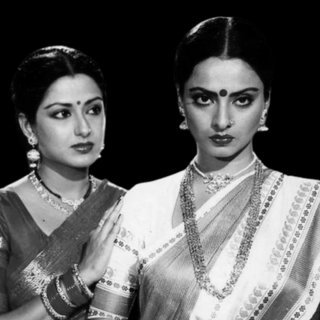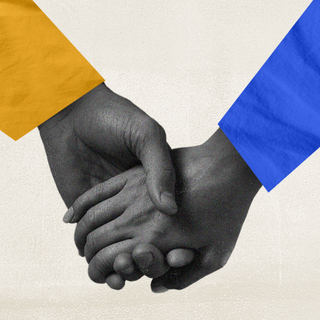
It’s Okay: To Take Sides in Family, Friend Disputes
Not every relationship is meant to be viewed through an “objective” lens.

In It’s Okay, we defend our most embarrassing, unpopular opinions.
One is peaceful, two is company. But, three? Three is always trouble. It so happens that in every relationship dynamic, a person C would find themselves stuck between warring mutual friends A and B. Should C listen to A, even if they find B’s argument more convincing? Or should their loyalties lie with A, an ode to their friendship’s longevity? Different permutations, different situations, but the person who stands “in-between” two people at loggerheads is always in a thorny situation.
Should you take on someone’s “drama”? The short and sweet answer here is a convenient no. This wisdom is safe and sound; getting in between conflicts is as good as entering the conflict itself and letting go of boundaries so cautiously erected. One puts their individual relationships at stake, sometimes even at the cost of one’s mental health, for little to no emotional pay-off.
But being Switzerland and playing the neutral card is a “strategy” at best — not quite fitting in place when it comes to real relationships with real people.
See, playing it safe would mean taking a pledge of objectivity: in no case should person C take a side between two parties they know and probably love. “I don’t want to get between my parents fighting,” said a friend quite recently. To them, fairness meant objectivity and distance. This may work for some, not for others — especially if they believe strongly about what the disagreement was. Sometimes convictions and empathy can drive support for one said party, and that’s quite alright.
The problem with objectivity is precisely this: while it remains the desired standard of human functioning, it is terribly hard to divorce facts from their context. So even if one may quite literally will themselves into staying neutral, a small, tiny voice would still whisper in the ear, speaking a truth they may not want to hear.
Related on The Swaddle:
How Pop Culture Paints an Unhealthy, Unsustainable Picture of Friendships
There’s an old chestnut that finds three sides to every argument — one person’s side, the other person’s side, and the truth. It becomes cautionary advice to always look out for the unbiased version of events. But this, again, pushes for people to seek the “Gospel Truth,” as if there ever is a singular, absolutely objective version of events that casts one as “innocent” and the other “evil.”
There are several truths to every situation; to withhold opinions because no two parties would ever tell the true story feels like a lose-lose situation if there was one. If anything, as someone who does pick a side, it becomes a moral responsibility to help people realize their truths better, and even encourage them to find them. Truths are always a sum of human emotion and perception, but this is an equation where each variable is intangible and abstract. The end result will always look different to different people.
Taking the middle road then, in some ways, feels like shorthand for opting for the more convenient way out. There’s nothing wrong with not jumping to conclusions when it comes to someone else’s conflict, and even retaining the outsider position to offer perspective to disagreements later on. But there have to be times when a person may feel compelled to take sides purely out of principle, for loyalty to someone, or if they believe in the issue. Maybe your friend cheated on their partner (who you are also friends with), it’s okay to pick a side if you feel strongly against infidelity or if the friend needs support. For any which reason, picking a side doesn’t mean joining a battalion and declaring war on the other side; it could be a gentler, kinder way to showcase support when the gray overrules the black and white.
It begs the question: Why must we be so averse to drama, to the patchy areas in relationships, that our instinct is to back away? Chaos is the script our life plays to, and it’s okay to invite trouble every now and then.
Sometimes, alliances are stronger than convictions; other times, convictions give us the strength to put our weight behind some alliances. We can love two people but be capable of disagreeing with them every now and then; that’s not a heretical act of disloyalty, but the humanness of relationships.
Saumya Kalia is an Associate Editor at The Swaddle. Her journalism and writing explore issues of social justice, digital sub-cultures, media ecosystem, literature, and memory as they cut across socio-cultural periods. You can reach her at @Saumya_Kalia.
Related


The Buzz Cut: Woman With Great Maternity Looks Finally Gives Birth, Internet Loses Primary Source of Content
